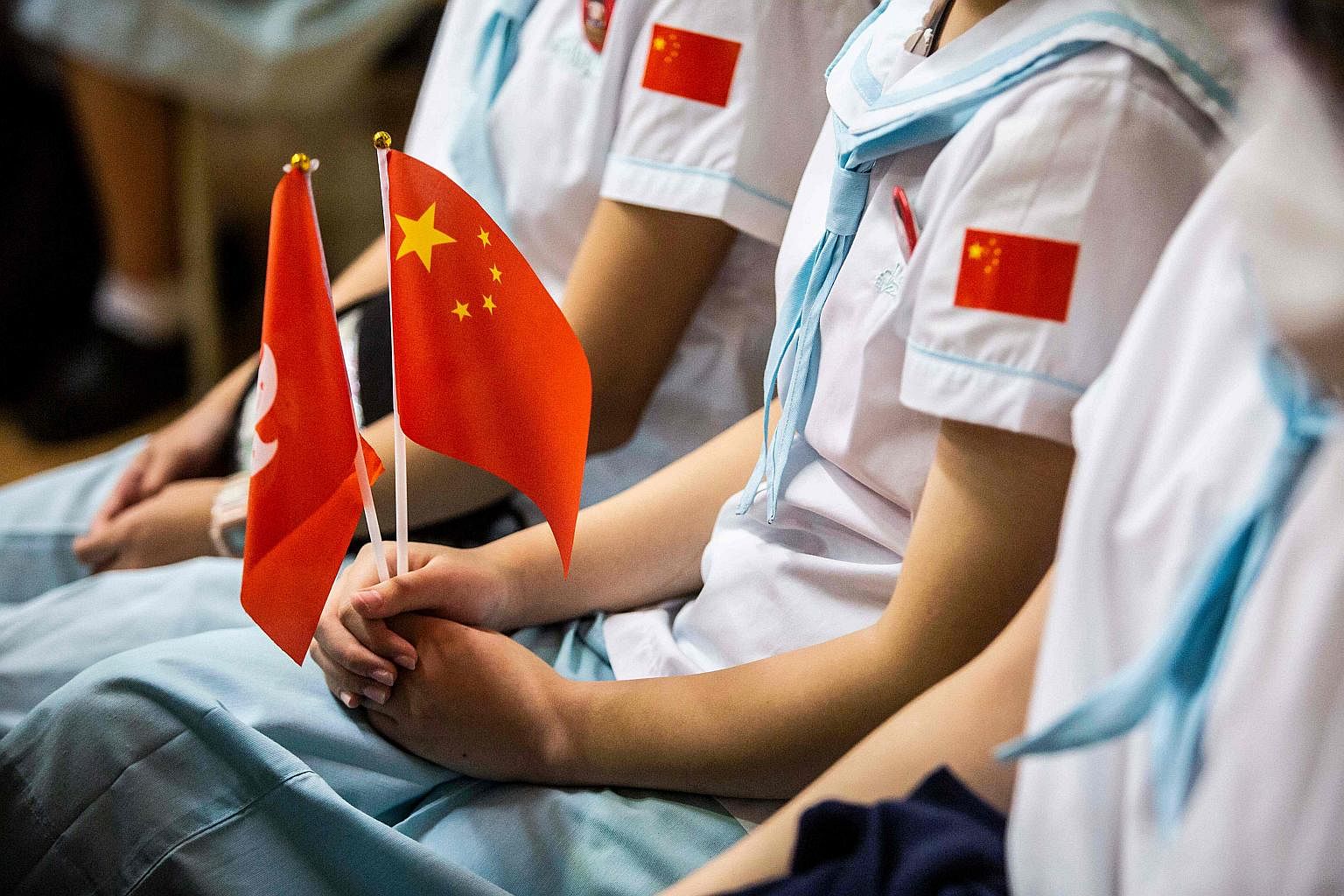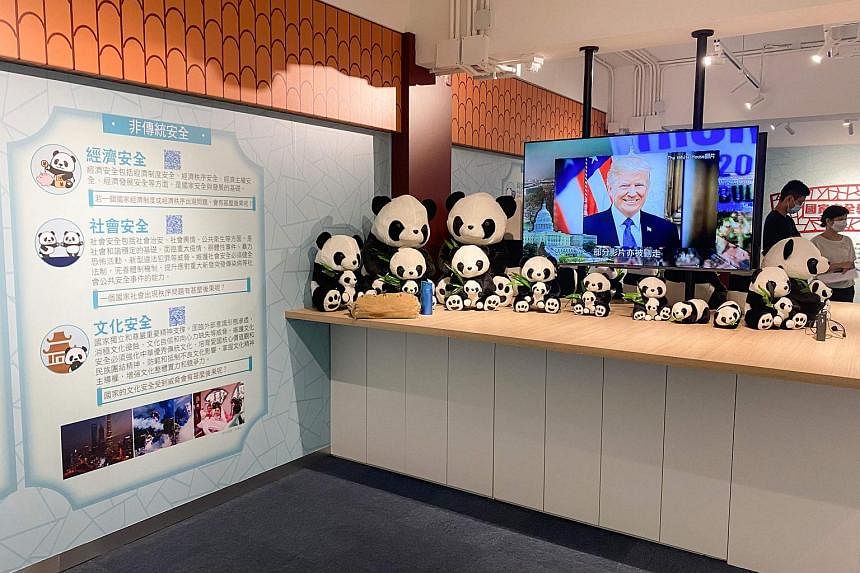HONG KONG (AFP) - Rows of fidgeting Hong Kong school children looked on as a short film explained what constitutes a national security crime, using former United States president Donald Trump as an example - and a warning.
The TV was surrounded by dozens of stuffed panda toys, which the children were assured they could play with later if they listened attentively.
The screening was at Hong Kong's first patriotic education centre, which teaches students about the city's new national security law, as well as China's history and achievements.
Beijing imposed the sweeping law on Hong Kong to snuff out dissent after huge, and sometimes violent, democracy protests in 2019 - and schools have been ordered to instil a new sense of patriotism into children.
As the new academic year began Thursday, another group of some 40 students from Pui Kiu College, known for its patriotic teaching, were among the first visitors.
"Can anyone tell me why national security matters?" a retired teacher-turned-volunteer guide, who gave her surname as Kan, asked the chirping crowd.
"Without national security, humankind cannot live well," a student answered.
"Well said," Ms Kan replied. "People cannot live well, nor can the pandas."
Ms Kan said her "most important" task was helping children understand the four new offences under the security law: secession, subversion, collusion with foreign forces and terrorism.
Trump and Lai
During Ms Kan's talk, Mr Trump and the Jan 6, 2021 Capitol Hill riot were used to illustrate subversion - the offence of trying to topple or undermine the government.
For foreign collusion, she used jailed Hong Kong pro-democracy media tycoon Jimmy Lai - without naming him. Lai and senior editors from the now-shuttered Apple Daily newspaper are facing an upcoming trial on collusion charges for allegedly lobbying for international sanctions against Hong Kong.
Then Ms Kan turned to the moment Hong Kong's legislature was broken into by democracy protesters in 2019.
"What offence was committed by the children who looked like they were going mad in the legislative council?" Ms Kan asked.
"Terrorism," some students replied.
"They didn't set a fire or kill people," Ms Kan said, nudging them towards the offence of subversion.
Political conversion

The centre is operated by the city's largest pro-Beijing teachers union in a vacated school at the foot of Lion Rock, a mountain popularly considered a symbol of the city's can-do spirit.
Until recently, Hong Kong teachers could also join a pro-democracy union, but it closed in the wake of the political crackdown.
The huge 2019 rallies came after years of growing demands for Hong Kongers to have a greater say in how their city is run.
Leaders in Beijing and Hong Kong have dismissed calls for democracy and instead portrayed the movement as a foreign-directed plot to destabilise all of China.
Hong Kong's new leader John Lee, a former security chief who helped lead that crackdown, attended the centre's inauguration ceremony in July.
"In the past, some ill-intentioned people… smeared national education for a long time," he said at the time. "I fully believe the centre will become… a learning field that nurtures a new generation of youth who love China and Hong Kong."
Ms Kan said she used to attend the annual vigils in Hong Kong to commemorate democracy protesters killed by Chinese troops in Tiananmen Square.
"But after I saw how violent it became on TV (in 2019), I had a big turn," she said, referring to the protests.
"I regret how late I began to love my country," she said as tears welled up in her eyes. AFP

